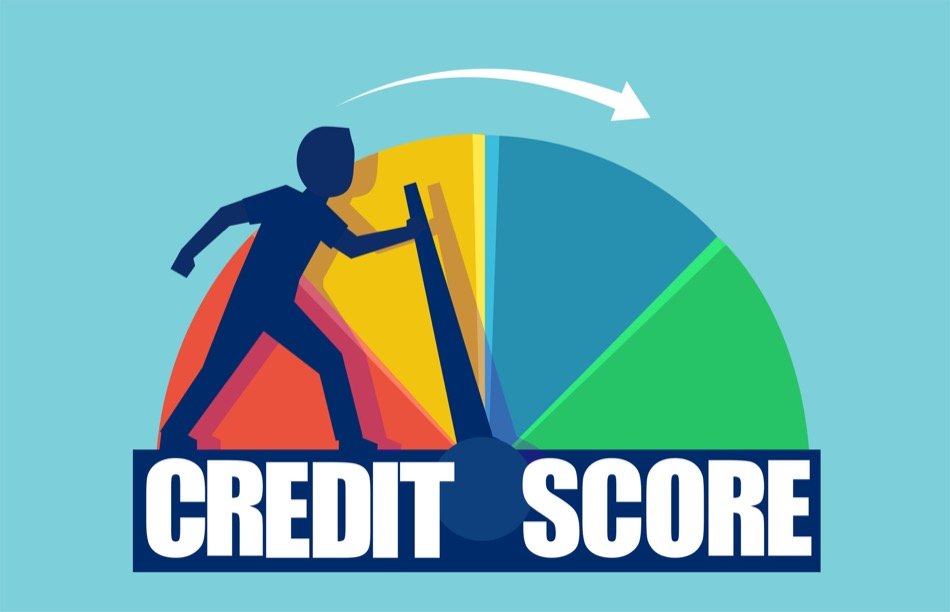How Do Credit Scores and Mortgages Relate?
Posted by Justin Havre on Thursday, April 4th, 2019 at 3:15pm.
 Buying a home for the first time is typically the biggest expenditure in a person's life thus far. It's a huge commitment, and lenders want to be sure that borrowers are up to the task of paying off their loans. Credit scores and credit history are the way that banks can figure out which home buyers are likely to make good on mortgage payments and which are more of a risk. Cultivating a positive credit score is the way for a buyer to communicate that they are ready for the task of buying a home.
Buying a home for the first time is typically the biggest expenditure in a person's life thus far. It's a huge commitment, and lenders want to be sure that borrowers are up to the task of paying off their loans. Credit scores and credit history are the way that banks can figure out which home buyers are likely to make good on mortgage payments and which are more of a risk. Cultivating a positive credit score is the way for a buyer to communicate that they are ready for the task of buying a home.
For informational purposes only. Always consult with a licensed mortgage professional before proceeding with any real estate transaction.
How Credit Scores Affect Home Buying
A good credit score can make or break a person's ability to buy a home. In Canada, a buyer must have a minimum credit score of 600 to get approved for a mortgage. Lower than that, and the buyer may be unable to buy a home. High scores means a better home buying experience. More qualified borrowers can get lower interest rates, lower down payments and other perks that can make all the difference in their ability to buy.
What Factors Influence a Credit Score?
Canadian credit scores range from 300 to 900 points. They are created using information from reports from Canada's two credit bureaus: Equifax and TransUnion. Information that can show up on a credit report and influence a credit score includes several factors. The first is credit history length. The longer someone has been using credit responsibly, the better their score will be. A long credit history is also more resilient to the blemishes that can hurt a smaller credit history.
Public records such as personal bankruptcies and foreclosures can have a significant effect on a credit score. A bankruptcy stays on a person's Equifax credit report for six years. The mix of credit types is another factor that influences a score. Lenders like to see a mix of installment loans like car loans and revolving credit like credit cards. Together, these show that a borrower can effectively handle multiple types of debt instruments.
The payment history is recorded on a credit report and has a strong influence on a credit score. Missed or late payments can cause a credit score to drop.
The recent credit inquiries is also a factor that influences credit score, although less dramatically. Inquiries for new credit can create the impression that a borrower may become over leveraged. Finally, the amount of credit extended, balanced against the percentage of that in use, shows creditworthiness. The lower the ratio, the better the borrower looks.
Ways to Build a Great Credit Score
A good credit score does not just happen overnight. Deliberate action taken over a period of years can build a good score and make a borrower look like a better prospect. By carefully making financial choices that fit the goal of building credit, a borrower can increase their chances of getting a loan with a good interest rate. The first factor that influences credit, and hardest to alter, detail is the length of a person's credit history. The longer someone has been using credit responsibly, the better their score will be. Because of this, many experts recommend against closing old lines of credit.
Ensuring that a credit report is free of errors can benefit borrowers. When someone looks at their credit report, they should be on the lookout for factors that include paid debts reported as open, duplicate debts and debts that do not belong to them. Applying for a mix of credit instruments early on helps build good credit scores. A small personal loan used to consolidate credit card debt is one option. This adds a new credit type to the credit history.
Avoiding applying for new credit when someone is getting ready to buy is important. Timing is everything. The small dip in credit score a new inquiry causes can be enough to make a difference between a low interest rate and a higher one. Paying on time every month is one of the most powerful things a potential borrower can do. Many people opt for auto-paying at least the minimum due on all credit cards and loans each month. By taking the process out of the individual's hands, they can be sure that a user error won't cost them valuable points.
By making conscious decisions that increase a borrower's credit score, that borrower can qualify for a better loan. This gives them the possibility of borrowing more and having more Tower Hill housing buying options available. It can also result in lower interest rates and savings on areas like closing costs. Together, these factors can result in a much better home buying experience and a more secure future.
For informational purposes only. Always consult with a licensed mortgage professional before proceeding with any real estate transaction.
